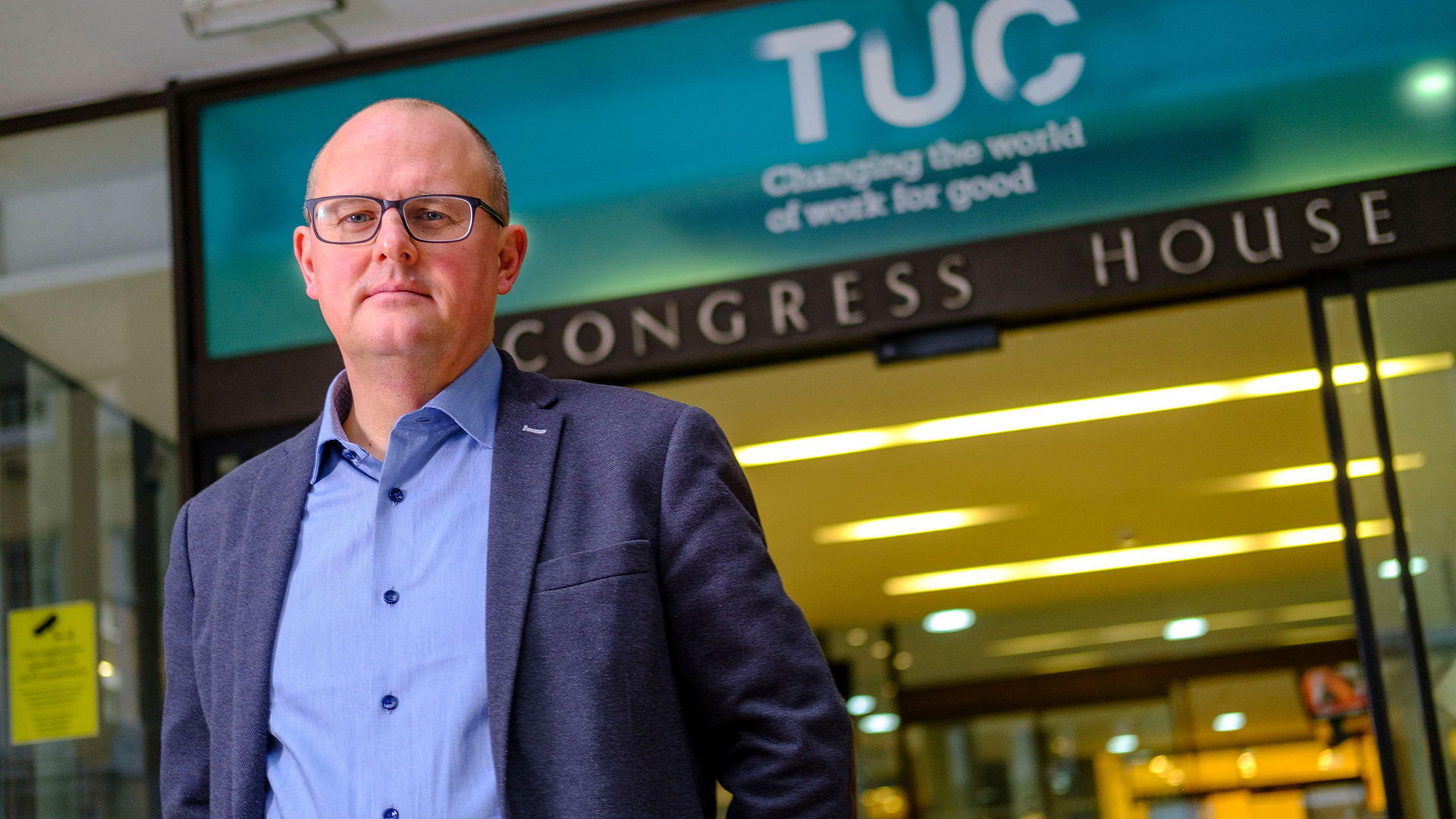What’s really interesting is that we’ve had groups of workers taking strike action for the very first time. I stood on picket lines with physiotherapists, with paramedics, as well as workers across the private sector. And all of them were saying: we just can’t afford another year of real-terms pay cuts. It was a year that put the trade union movement in the public eye in a way that it hasn’t been for a long time.
Wages failing to keep up with the cost of living is one factor; what else is pushing people to picket lines?
There’s a sense that people are just at the end of their tether. They’ve been working flat-out through the pandemic and beyond, workloads ever-increasing, resources perpetually on the decline, and they’re being asked to do more for less. They’ve hit a breaking point. In the health service, we’ve got 112,000 staff vacancies [according to NHS data published in May 2023] and you can’t carry on delivering services day in day out when you’ve got that many people missing.
I think a lot of it is driven by that sense that we’re being told there’s a cost of living crisis, but actually those in the boardroom seem to be doing quite well. And of course, one group of workers sees another group of workers winning. Activism is contagious.
Why do you think the perception of trade unions is changing?
You can trace it back to the pandemic – we were involved in things like the furlough scheme [trade unions contributed to the establishment of, and extension of, the scheme during the pandemic], where for the first time even those people who weren’t union members could see unions making a difference.
Advertising helps fund Big Issue’s mission to end poverty
I think the government thought they could effectively drive a wedge between unions and the public this year, forgetting the fact that our members are the public. They don’t just drive trains and work in hospitals, but they also use public transport and their families rely on the NHS. So there has been this attempt by the Tories to use the old Margaret Thatcher playbook, treating unions as the enemies within. I don’t think the public has bought that one iota. And that’s borne out by the fact that public support has stayed steadfast behind workers taking industrial action, even when those disputes have been quite long and protracted.
And – saying this as a white, middle-aged male – our movement is really starting to reflect Britain at work and the working class in all its diversity. Sometimes progress doesn’t happen as fast as you want but we’ve set ourselves concrete targets, and we’re aiming to organise much more effectively in the outsource companies – so it’s not just those who are directly employed, but the people providing cleaning services, security services, catering. You can’t be complacent, but the trade union movement feels like a much more welcoming, diverse place than it ever has before.
What were the biggest wins for workers in 2023?
Millions of workers in the public sector – in the NHS, in education, you name it – were told “this is your reward this year, there will be no further negotiations, there will be no more money”. And in every single one of those industries, the government and employers ultimately had to move in favour of workers after they voted for or took industrial action. In the private sector, we’ve had lots of unions win double-digit pay rises – from bus drivers to dockworkers to baggage handlers to retail workers.
And that’s just one type of win. There’s still work to be done, but the strike action taken by GMB members at Amazon was really important. That started as a few dozen workers in the union to 1,000. It gives you a sense there are no no-go areas for unions now and employers should be prepared. Things are changing.
Could that progress be hindered by the government’s anti-strikes legislation?
Advertising helps fund Big Issue’s mission to end poverty
Workers always find a way. You can’t legislate industrial disputes out of existence. Our unions are absolutely committed to finding a way for members to take industrial action if that’s what they want to do.
We’re challenging the government any way that we can, we’ve lodged a complaint with the ILO [International Labour Organisation, a UN agency], we’ll explore legal challenges. The government has seen hundreds of thousands of workers take strike action, and rather than try to address the underlying reasons, they just tried to make it more difficult for people to go on strike. It doesn’t resolve any problems, it doesn’t fix your staffing crisis in the NHS or in classrooms.
But in reality, this government isn’t interested in industrial relations. They’re interested in attacking unions to paper over the problems in the UK economy and it’s a play we’re seeing everywhere at the moment. It’s all the fault of trade unionists, it’s the fault of migrants, it’s the fault of trans men and women. Everybody except the government itself which has presided over 13 years of stagnant living standards. It’s a particularly nasty form of distractionary politics.
What do workers and their unions need from the major parties in the event of a general election?
I mean, 13 years of Tory governments have brought this country to its knees. I can’t think of one element of our public realm that is better now than it was 13 years ago. So we want a Labour government that’s going to deliver on the things that matter to unions and their members. Top among that will be the sort of measures they’ve agreed with unions called the New Deal for Working People.
That’s everything from day one employment rights, a ban on zero-hours contracts, a ban on fire and rehire, union rights to access the workplace, a real living wage, new fair pay agreements in sectors like social care. Labour said they will bring forward an employment bill within the first 100 days of a Labour government. And we’ll be holding them to that.
Advertising helps fund Big Issue’s mission to end poverty
But beyond that, we need a government that’s got an industrial strategy that’s worthy of the name. A clear plan for creating good quality, sustainable jobs and for getting to net zero in a way that will support those jobs. That helps people cope with this wave of technological transformation. There is just so much at stake.
What developments should we expect in 2024?
In many ways the ball is in the government’s court. Are they going to learn the lessons from 2023? Beyond that, I don’t think it’s necessarily just about more industrial action. Unions have signed some interesting agreements recently with the likes of Deliveroo and Uber. When Elon Musk took over Twitter and announced redundancies, we saw a spike in union recruitment.
I wouldn’t be surprised to see unions popping up in unexpected places. Particularly for that next generation of workers coming through that maybe aren’t working in traditionally unionised industries – they’ll have seen what’s been happening in different parts of the economy as well. I expect to see more of that kind of bottom-up organising. And all the better.
This article is taken from The Big Issue magazine, which exists to give homeless, long-term unemployed and marginalised people the opportunity to earn an income. To support our work buy a copy!
If you cannot reach your local vendor, you can still click HERE to subscribe to The Big Issue or give a gift subscription. You can also purchase one-off issues from The Big Issue Shop or The Big Issue app, available now from the App Store or Google Play
Advertising helps fund Big Issue’s mission to end poverty









